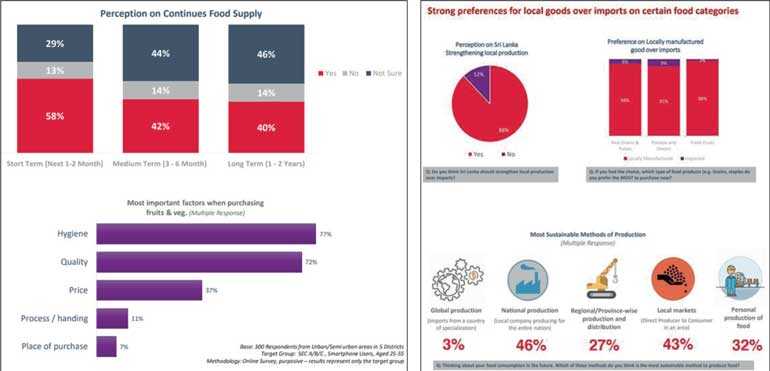Tuesday Feb 17, 2026
Tuesday Feb 17, 2026
Monday, 18 May 2020 00:00 - - {{hitsCtrl.values.hits}}

Waves of change sweep through as COVID-19 disrupts the world order and resets the way we live, work, shop and eat. In a matter of few days the scene rapidly shifted from panicked shoppers, emptying  aisles in grocery stores to lockdowns as people confined themselves within their homes. Disruptions and chaos were set in motion – as businesses struggled to get the engines running to service the needs of consumers.
aisles in grocery stores to lockdowns as people confined themselves within their homes. Disruptions and chaos were set in motion – as businesses struggled to get the engines running to service the needs of consumers.
Food supply networks especially within cities were disrupted during the crisis – revealing the
vulnerabilities of the system that we depend upon for survival. Sourcing ingredients to prepare meals during the beginning of the lockdown wasn’t an easy feat. But, as the haze clears out, the competent players in the industry have adapted and made shopping from home a reality through convenient, better and efficient mechanisms in place. People’s needs are constantly evolving and the present challenges are forcing businesses to refine their approaches in order to build robust systems. Thus, illustrating the importance of adapting, continuously striving to improve while getting rid of obstacles standing in the way of efficient systems.
Today, as people sit down to have their meals they are questioning more about the food that they consume in terms of how it’s produced and distributed. Over 3/4th of the respondents were concerned about the fruits and vegetables they consume – mainly in terms of whether it’s produced and transported ‘in a safe and hygiene conditions’ according to a survey conducted by Sparkwinn. 300 online interviews were conducted during the last week of April, covering five districts of the country to test the sentiments on food security.
Key findings from the study conducted by Sparkwinn Research have been summarised below.
Uncertainty looms around long-term food supply
The food flow from farms to plate have been a subject of little interest up to now. However, during this pandemic, food security is on everyone’s mind as uncertainty looms around the continuous supply of food over the long term. Around 40% mentioned that they were confident of a continuous supply of food in the medium/long-term.
Assurance on hygiene/safety standards implemented at every touch point
‘Hygiene and Quality’ undoubtedly emerged as the top most important factors considered while purchasing fruits/vegetables. Price was only considered after quality/hygiene. Food that travelled ‘long distance and multiple touch points’ is considered a cause for concern due to COVID-19 threat in the horizon.
Strong inclination towards local production
The measures taken by countries around the world to mitigate the COVID-19 pandemic has threatened the global supply chains mainly due to the internal border controls. Thus, adding further complexities to the supply chain. Local/national production was favoured by the majority of the respondents.
In fact, nearly 3/4 of the respondents expressed interest to produce their own fruits and vegetables. Consumers opt for de-globalized avenues as the most sustainable method of food production.
Conclusion
In the light of this context, safety/hygiene is given more importance than price, where food that travelled long distance, multiple touch points is a cause of concern. Businesses need to maintain and communicate about the standards adhered to at each touch point from production, transport and delivery to retail premises, etc. On the other hand measures need to be taken to stabilise the food system taking the supply chain disruptions into consideration in order to ensure the adequate supply of safe and nutritious food.
(The writer is a Director at Sparkwinn Research, a data-centric agency that focuses on studying consumer and social issues.)